- Skip to primary navigation
- Skip to secondary navigation
- Skip to main content
- Skip to primary sidebar
Word, Words, Words: Jessica Blogs on Blithe Spirit
A few weeks ago, I got to see the award-winning musical, “Hamilton.” Jealous? You should be. Kidding! (Not kidding.) It was by far the most amazing thing I’ve ever experienced on stage. Honestly, that surprised me. I knew I would love it, but I had no idea how moving, inspiring, and absolutely beautiful watching the show would be. I was in tears for most of the 2.5 hours, as were the audience members seated around me, including the young boy next to me who was dressed up as Alexander Hamilton. It was spectacular. The performances, storytelling, relationships, technical elements, but mostly…the words. The WORDS. At 144 words per minute, delivered at a dizzying, but beautiful pace, there are more than 20,000 words used to tell this story. That is more than many of Shakespeare’s plays, including “Julius Caesar,” “The Tempest,” and “A Midsummer Night’s Dream.”
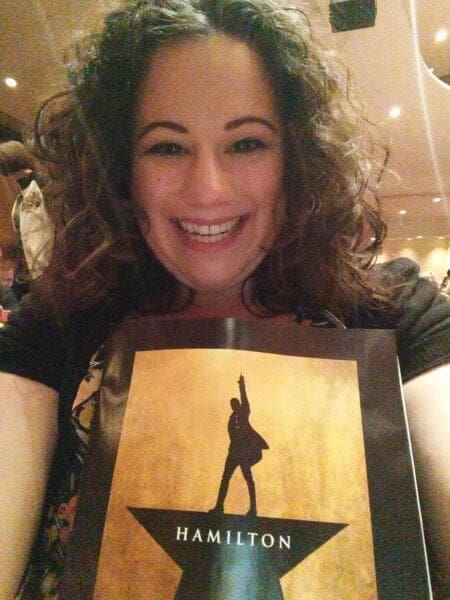
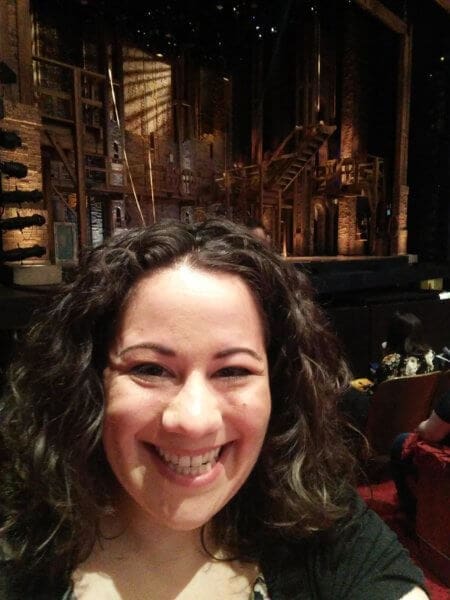
It was said that Alexander Hamilton wrote like he was running out of time. For the musical’s creator, Lin-Manuel Miranda, it took seven years to come up with this brilliant piece of theatre. So many words, but with such a strong purpose and intention behind using every single one of them. It took one year to write the first song, another year to write the second, and then some came to him so quickly – writing an entire song on a quick subway ride. These words have stuck with me for days after seeing the show – constantly replaying the songs which now have a more tangible meaning and visual to guide me along.
Renowned for its dialogue,“Blithe Spirit” was written in just five days. Noel Coward worked from 8 a.m. to 1 p.m. and from 2 p.m. to 7 p.m. each day, and upon completion, he said, “Disdaining archness and false modesty, I will admit that I knew it was witty, I knew it was well constructed, and I also knew that it would be a success.” Some people just have a way with words.
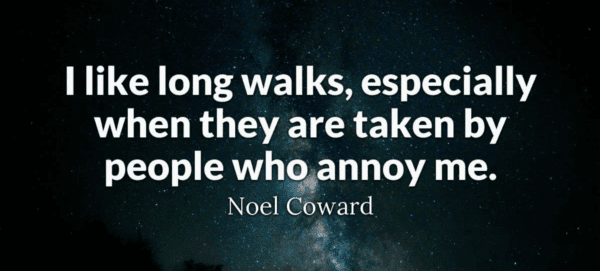
I’ll never forget the first time I participated in the “Cabaret Coward” event with Bag&Baggage, and realized very quickly how challenging Coward’s words can be to deliver naturally and with ease. He was a very wordy guy, but like Lin-Manuel Miranda, Coward’s dialogue was incredibly specific, with words intentionally chosen to make a point, poke fun at a dear friend, or provide witty subtext to the audience. A reviewer of the Broadway production of Blithe Spirit described, “Coward’s dialogue, rendered in a highly personal idiom, crackles with polysyllabic, sometimes arcane vocabulary and whizzes along in intricate sentences that pile up to form baroquely constructed speeches. It’s not prose that every actor can pull off.”
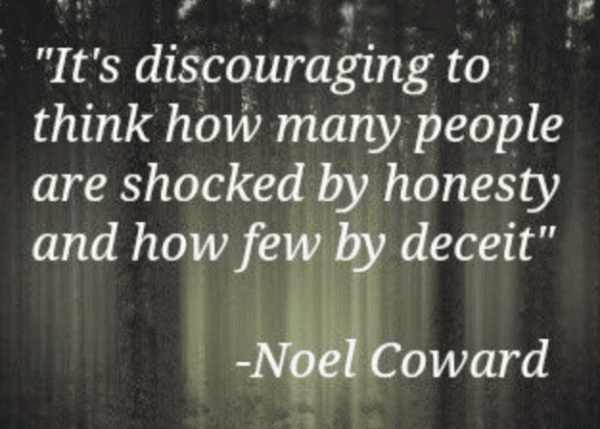
As I sat around the table at our first table read, my dear friends and talented artistic family by my side, I was excitedly giddy knowing that this team of actors could absolutely pull this off. I was still energized from seeing Hamilton just two days earlier, but I was reminded again of how, as actors, we get to take the playwright’s text and make it our own, using personal experience to make it tangible and believable, interpreting the clues and hints on the page to guide us through our character’s journey. Sounds deep. It is also so magical that we get to do what we do.
Maybe it’s all the coffee or the sunshine pouring through my office window, but I’m rambling a bit with excitement. I can’t tell you how much the words around me have made on impact on my life this year. When we deal with challenges or just simply need a release, I find that we often use words as our escape. We bury our faces in the pages of a good book, we turn on our favorite songs and get lost in the lyrics, we read motivational quotes to help start our day with inspiration.
I will leave you with one of my favorite Noel Coward quotes:
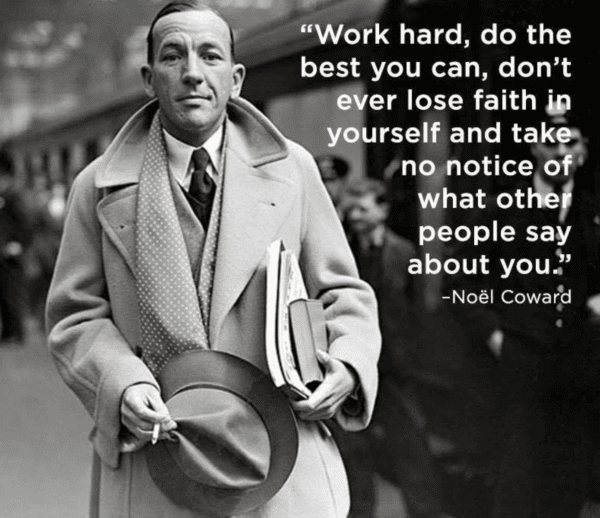
I can’t wait for you to join us for Blithe Spirit, and I know Coward’s words will make you belly laugh like I have been during rehearsals. See you at the theatah!
![]()
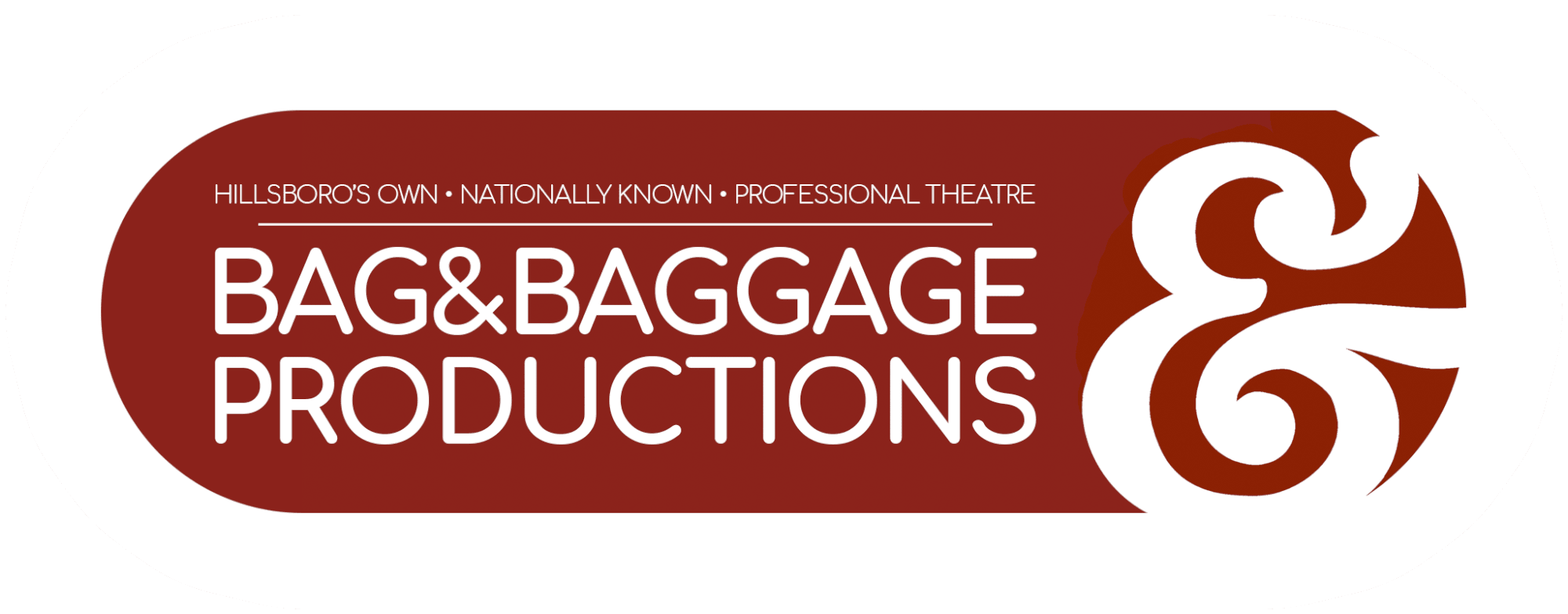
Reader Interactions